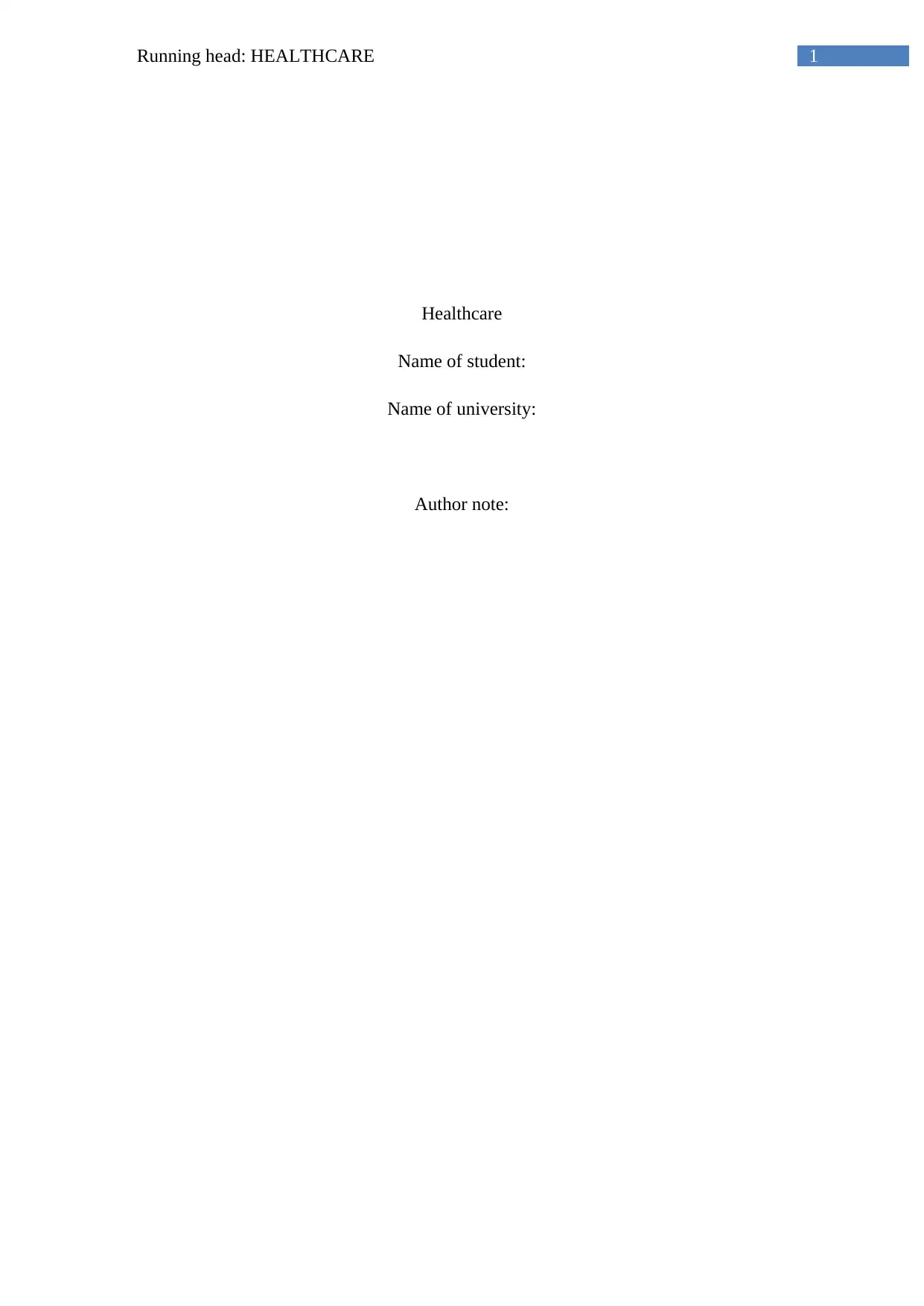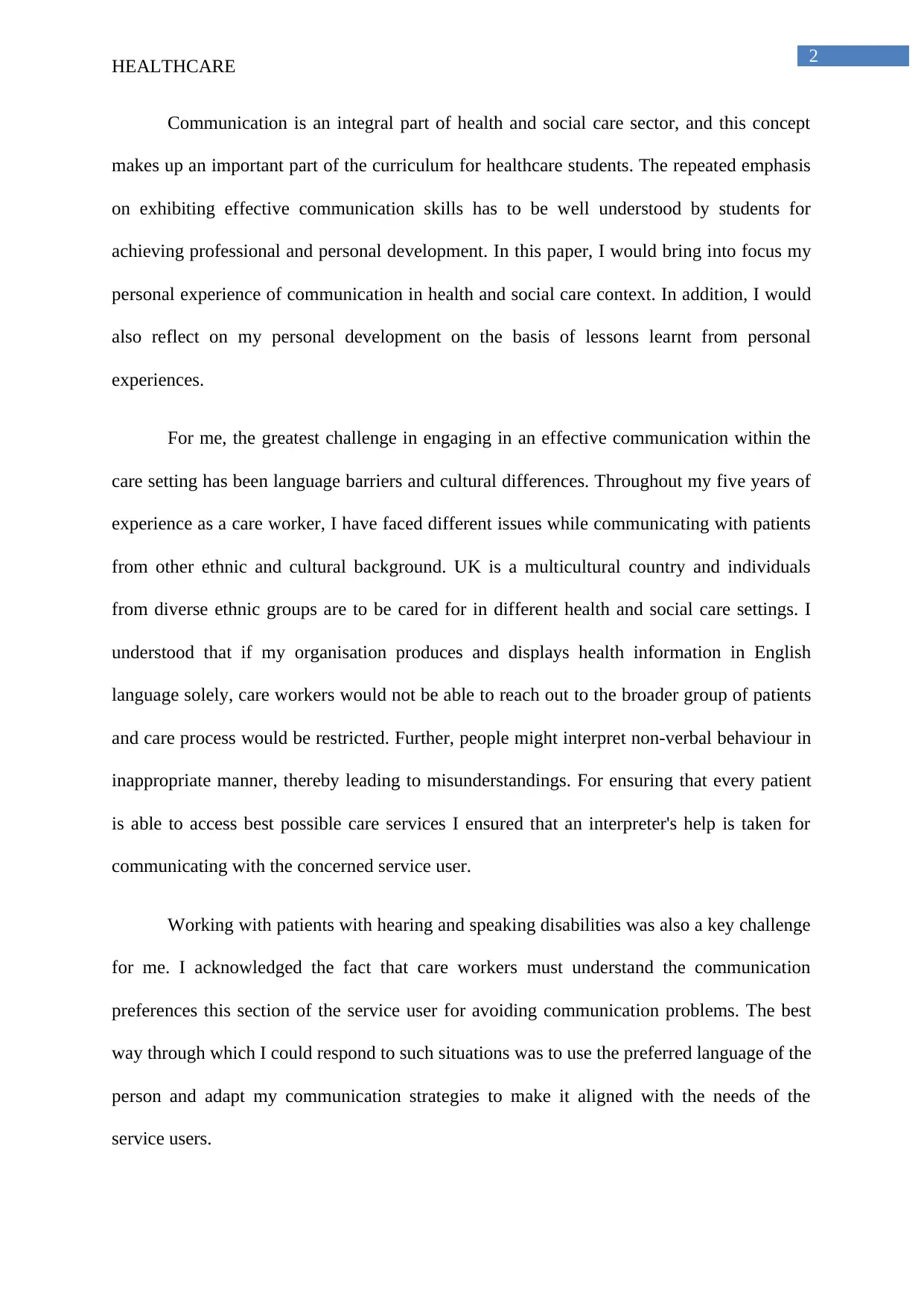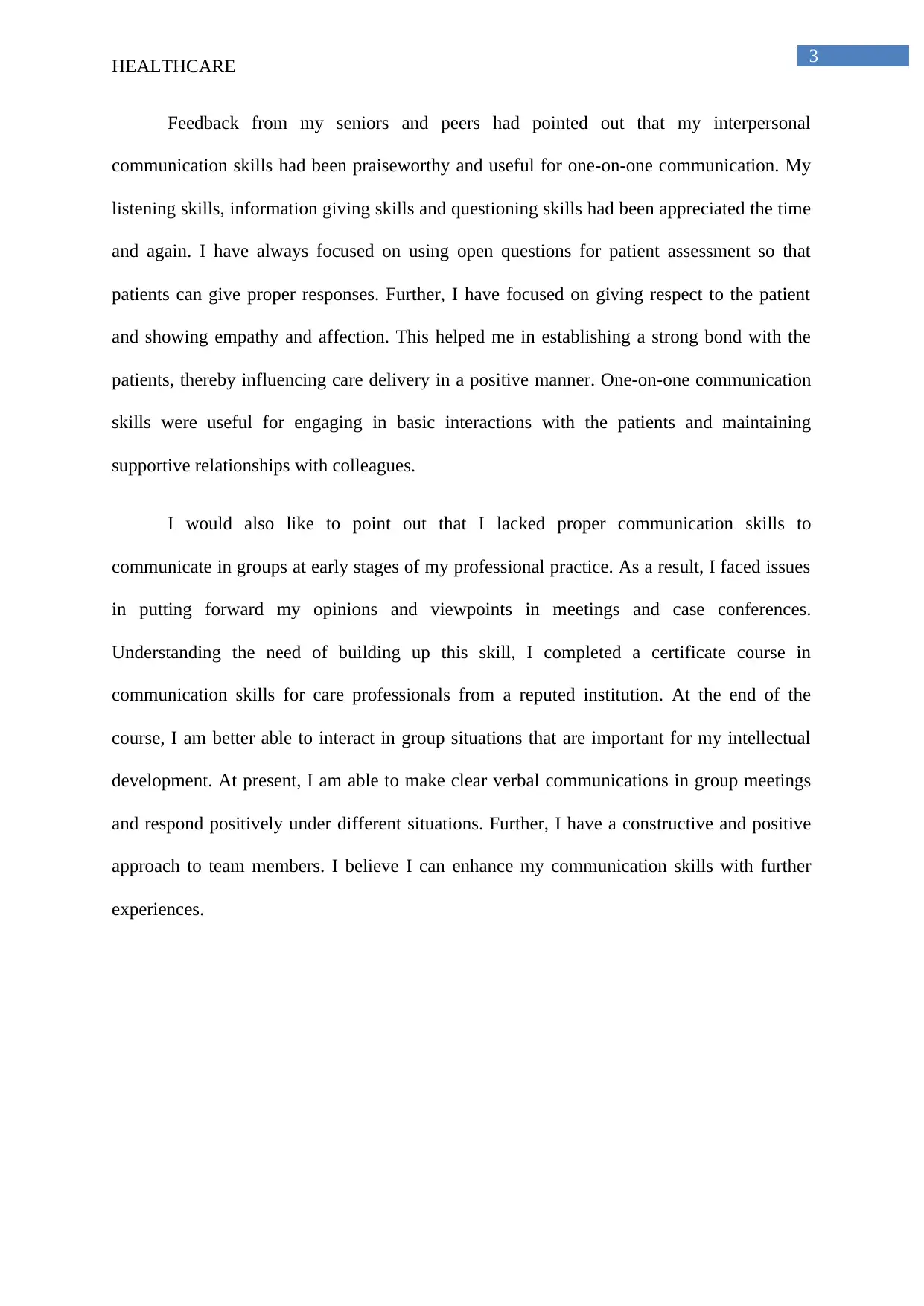Healthcare Communication Report: Communication Skills in Healthcare
VerifiedAdded on 2020/04/13
|3
|602
|475
Report
AI Summary
This report examines healthcare communication within a health and social care context, focusing on the author's personal experiences and professional development. The author discusses challenges such as language barriers and cultural differences encountered while communicating with diverse patient populations. The report highlights strategies employed to overcome these challenges, including the use of interpreters and adapting communication methods for patients with disabilities. The author reflects on the positive impact of effective interpersonal communication, including listening skills, information-giving, and the use of open questions. Additionally, the report addresses the development of group communication skills through a certificate course, showcasing improved interactions in meetings and a more constructive approach to teamwork. The author emphasizes the importance of ongoing skill enhancement through continued experience.
1 out of 3









![[object Object]](/_next/static/media/star-bottom.7253800d.svg)